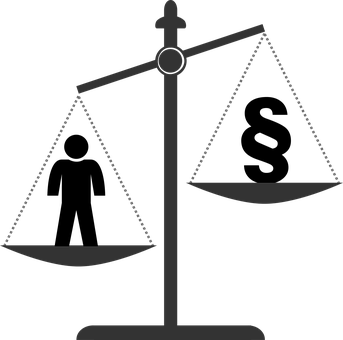You can sue for damages and receive compensation if you are injured as a result of someone else’s negligence, but you may have to wait months or even years for the case to be resolved.
That is why a large number of claimants use lawsuit loans. This form of support can help you avoid debt collectors while you recover. If necessary, you can take out multiple litigation loans.
What Kinds of People Are Eligible for a Lawsuit Loan?
If you’re a plaintiff seeking compensation, you’re a good candidate for a lawsuit loan. Plaintiffs have benefited from this form of funding in a variety of situations, including:
- Cases involving personal injury
- Lawsuits alleging medical malpractice
- Disputes over employment or labor legislation
One criterion to be aware of before applying is that you must have legal representation. A lawyer may be beneficial to both you and your lender.
When Would a Lawsuit Loan Be Necessary?
Your lawyer may want additional time to gather evidence to back up your claim. If the defendant’s lawyer refuses to accept a reasonable settlement, negotiations can drag on for a long time.
The defendant may be aware that you have been harmed and will be unable to work while you heal. Unfortunately, some insurance companies will use stalling tactics to force you to accept a lower settlement than your case is worth. A lawsuit loan might help you get by while your lawyer fights for the full amount you need to take care of your injuries.
What if I’m Unable to Repay my Loan Before my Case is Resolved?
If your case takes too long to resolve and you run out of money from your lawsuit loan, you can always seek further funding. Some claimants may require two or three litigation loans. You may be able to borrow up to 10% to 20% of the value of your case in additional loans, depending on your lender.
Acquiring additional cash is similar to getting a litigation loan for the first time. Your credit score will not be examined, and your personal finances will have no bearing on your loan rates. You may normally expect to get funds within 24 hours after your application has been approved.
What Is the Process for Repaying a Lawsuit Loan?
A litigation loan is different from a regular bank loan that is usually paid back in monthly installments. You won’t have to worry about a payment schedule or a penalty interest rate if you pay late. You are not required to repay it until your lawsuit is resolved and damages are awarded.
When your lawsuit is settled, your lawyer will usually get your settlement or court award. Legal fees and the amount owed on your litigation loan will be taken from your settlement at this point. Your attorney will pay back your lawsuit loan lender and give you the rest of your payout.
What Happens If My Lawsuit Is Dismissed?
The strength of your case is evaluated when you ask for a litigation loan. If your application is granted and you’re awarded a lawsuit loan, it means your lender thinks you’ll win your case.
If your case is rejected outright or if your case is settled without compensation, your lender will not ask for repayment. Your loan will be canceled if you lose your lawsuit.
If you need commercial vehicle accident loans, you should speak with a lawyer. If you want to file a personal injury claim or a lawsuit, you should consult with an experienced legal team. You can rest easy knowing that a lawsuit loan will safeguard you if your case takes a long time to settle.







